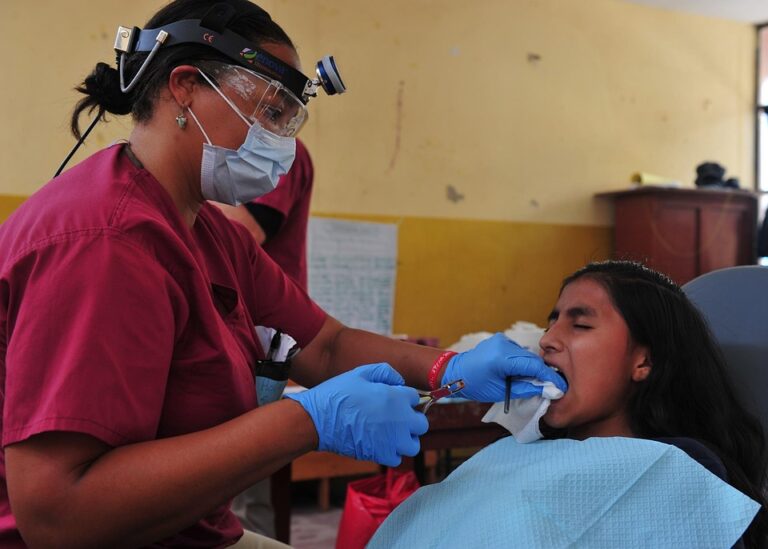
Does Missouri Medicaid (MO HealthNet) Cover Dental Implants? My Personal Guide to Dental Benefits
Table of Contents
Introduction: My Experience Navigating MO HealthNet’s Dental Maze
When I first started asking if Missouri Medicaid (MO HealthNet) would pay for dental implants, I was just like you: a little lost and kind of hopeful. To me, dental implants felt like the best thing—a way to chew again, smile right, and honestly, feel good about myself. But I also saw the huge price for implants, and being on MO HealthNet, I wasn’t sure what was possible.
So I started asking questions. I called the numbers, talked to my dentist, flipped through rules, and chatted with others in the same boat. What I found out could help you avoid some of the stress and confusion I went through.
Let’s break down what MO HealthNet really says and does about dental implants, what it usually pays for, and what choices you might have if insurance doesn’t come through.
What Missouri Medicaid Dental Actually Covers for Adults (and What It Leaves Out)
MO HealthNet isn’t as bad as some people say, but in my experience, the help you get is pretty basic, especially for adult dental care. Implants, I learned quickly, are almost always off the list.
Preventive Services: Keeping Your Mouth in Check
MO HealthNet covers the basics for adults. I got my yearly checkup paid for, plus a simple cleaning and X-rays. These might feel small, but they’re important—they catch problems before you’re stuck with a toothache.
Basic Restorative Procedures:
When I got a small cavity, Medicaid paid for a basic silver filling. MO HealthNet pays for simple fillings, both silver and white ones. But if you ask for something prettier or “top shelf”—like special inlays or anything that’s only to make teeth look better—they’ll say no.
Emergency Dental Care: When Things Get Painful
Once, I got a bad toothache. Luckily, MO HealthNet covered an emergency visit. If you’re hurting, have an infection, or have an injury, Medicaid pays for work to fix the pain or pull the tooth.
Tooth Replacement Alternatives: Full and Partial Dentures
I was hoping for a tooth replacement that worked like my real teeth. MO HealthNet does cover dentures—both full and partial—for adults, usually every 5-8 years if you need it and have a dentist prove you do. They don’t work as well as implants, but for many, they help you eat and smile again.
Why Implants Are Typically Not Covered
This is the big thing: Medicaid calls implants “not needed” for adults. In other words, unless there’s a super strong medical reason—like dentures won’t help after a big surgery or injury—implants just aren’t paid for.
Why not? Implants cost a lot (more on price later) and Medicaid’s goal is to help you chew and stay healthy—not to give everyone the newest, best fix.
Can You Ever Get Dental Implants Through Missouri Medicaid? (The Exception, Not the Rule)
When I asked my dentist, he gave me a look like, “You wish.” But there are rare cases.
Strict Medical Necessity: The Tiny Sliver of Hope
After hours of reading and phone calls, here’s what I found: MO HealthNet will only look at implants if you have a big medical reason. If you’ve had major injury to your face, lost bone from cancer treatment, or were born with a problem that means dentures can’t help, you might get an exception.
How often does this work? Almost never. You need tons of paperwork, proof from different doctors, and a reason that goes way past “these dentures hurt.” I only heard of a few people who got implants after something major, like cancer or a bad accident.
Prior Authorization: The High Hurdle
If you somehow do qualify, it’s a long, hard process. You’ll have to get Medicaid’s pre-approval before anything happens. That means your dentist—and maybe other doctors—have to send records, a whole story about why you need implants, x-rays, and more. It moves slow, with lots of waiting.
Important Note: Set Realistic Expectations
I had to learn this: don’t bet on rare exceptions. If you want implants, be ready to pay for them yourself or look for something outside Medicaid. The rules don’t seem likely to change anytime soon.
If you’re curious about how dental labs make different replacement teeth, learning about the implant dental laboratory process is pretty interesting—even if Medicaid won’t pay for it.
MO HealthNet Dental Coverage for Kids and Special Cases: What I Learned
I never used Medicaid for kids, but friends did, and their stories were different.
EPSDT Benefits: A Much Wider Safety Net for Children
If you’re asking for a child under 21, Medicaid (with something called EPSDT) pays for almost everything: checkups, cleanings, sealants, fillings, crowns, root canals, and when really needed, braces. It’s a lot better for kids than it is for grownups.
Implants for Kids: Still Rare, Only for Severe Needs
I checked if kids ever get implants with MO HealthNet. The answer—almost never. It’s mainly after a big injury or problem you’re born with, where other things like dentures can’t work. Again, you need lots of specialist notes.
Special Considerations for Disabled Individuals
My cousin with a disability wanted better teeth, too. But even for people with disabilities, Medicaid follows the normal policies. Unless the disability means regular tooth replacements just won’t work, implants aren’t covered.
So, for most people, you’ll have to pick a more basic option.
How I Navigated My MO HealthNet Benefits: Practical Steps and Tips
Trying to find out what MO HealthNet really paid for was a little tricky. Here’s how I made it a bit easier:
Step One: Verify Your Exact Coverage
MO HealthNet goes through smaller companies called Managed Care Organizations (MCOs)—like Healthy Blue or UnitedHealthcare. Call the number on your card. Be nice, but keep asking. Ask them:
- What dental work do you cover for adults?
- How often can I get new dentures or teeth pulled?
- Are implants ever paid for?
Every MCO is a little different, but the rules for implants are pretty much the same—no, unless it’s a super rare case.
Step Two: Find a Dentist Who Takes MO HealthNet
Not every dentist takes Medicaid. I used MO HealthNet’s dentist look-up tool, but I also called some local clinics to double-check. Places like community health centers and dental schools (like UMKC) are usually better bets. Some clinics work with a removable denture lab, which helps if you need dentures.
Step Three: Understand Prior Authorization (and Plan for Delays)
For anything bigger than a checkup (like dentures or surgeries), the dentist usually needs Medicaid’s OK first. It’s just like getting approved for a loan—you need to fill out forms and send in paperwork, then wait. Keep papers together and call if you don’t hear back.
Step Four: Know Your Rights—Appealing Denials
Sometimes you might get a “no” that’s a mistake. If your dentist thinks you should get something, or your claim is denied wrongly, you can appeal. File your appeal quickly, save letters, and get help from legal aid or patient helpers if you can.
What If You Still Want Implants? Finding Affordable Options Beyond Medicaid
Once I knew Medicaid wouldn’t help, I started looking at other ways to make implants more doable. Here’s what I learned:
Dental Schools: The Hidden Gem
Places like the UMKC dental school let students work on you (with pros guiding them). It costs a bunch less—sometimes half price. They do put in real implants, but there’s usually a wait list.
Community Health Centers and Sliding Scale Clinics
Federal clinics (FQHCs) sometimes have a dental office. They don’t always do implants, but they pull teeth, make dentures, and do big jobs on a sliding scale based on your income.
Dental Discount Plans: Membership Has Its Perks
I tried a dental discount plan—you pay once a year and get a set percent off cleanings, fillings, or implants at certain offices. Read the fine print. Some dentists are not in the network, and some plans don’t help much with implants.
Payment Plans and Financing
Most dental offices can let you pay over time. For me, the price of one implant at a regular office was $4,000, but they offered payments spread out over a couple of years—still a lot, but not as scary as all at once.
Dental Grants and Assistance Programs
Don’t count on these, but sometimes a nonprofit or dental group gives out a few free implants for special needs or at events. Check the Missouri Dental Association and keep an eye on the news.
If you’re curious about how crowns and bridges are made, check out some info about a crown and bridge lab to learn more—even if you pay yourself.
The Realities of Dental Implants: Cost, Alternatives, and Oral Health in Missouri
Let’s talk simple facts, because this is where Medicaid’s rules really matter.
The Harsh Truth About Cost
Dentists flat-out told me: one dental implant in Missouri is usually $3,000–$6,000, higher if you need extra work. If you want a full row of teeth—All-on-4 or something like that—it can go over $20,000. If you’re on Medicaid, these prices are out of reach for most people.
Alternatives That MO HealthNet Pays For
- Dentures: Lose a handful of teeth? Full or partial dentures are covered by Medicaid (with limits). They work for eating and talking, just not perfect.
- Basic Crowns and Bridges: Sometimes paid for, but not to look pretty—only when your mouth really needs it, and Medicaid says yes.
Want to learn more about what hurts teeth and why you might lose them? You can read some easy info about common dental diseases.
Why Implants Aren’t Covered (and Probably Won’t Be Anytime Soon)
Medicaid is really just there to keep you able to eat, talk, and avoid pain. Since dentures are good enough for that (and a lot cheaper), they won’t pay for implants for most people. Only in rare, special medical cases is there even a chance.
The Bigger Picture: Oral Health in Missouri
Almost 1 out of 5 Missouri adults have lost a tooth because of decay or gum disease. People on Medicaid lose even more teeth, on average. It can affect eating, speaking, your mood, and your look.
That’s why knowing every option matters, even if some aren’t what you hoped for.
Conclusion: My Best Advice for Those Considering Dental Implants with MO HealthNet
If you’ve read all this, you can see that getting dental implants with Missouri Medicaid is really, really tough—almost always, the answer is no unless your medical situation is very special. Medicaid pays for dentures and simple repairs, and for most adults, that’s all you’ll get.
Still, don’t stop trying. Have open talks with your dentist about replacements. Check out dental schools, clinics, and payment plans if you’re set on implants. But most important, don’t forget about your overall tooth health—a solution you can afford and use now is better than waiting for Medicaid’s rules to change.
Call your MO HealthNet company to double-check what’s paid for, and visit clinics where staff are used to Medicaid paperwork. I learned that keeping after the paperwork, asking questions, and being patient are some of the best tricks for getting care.
If you like to read about what’s coming next in dental technology, checking out advances in the digital dental lab field is fun and could show you where the future is headed—even if insurance hasn’t kept up yet.
Bottom line: look after yourself using whatever options you can afford, and never be afraid to ask for help. That’s been the most important lesson in my own dental journey—and I hope it helps you, too.








